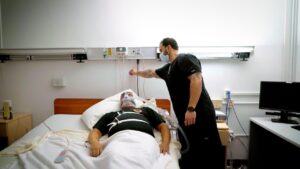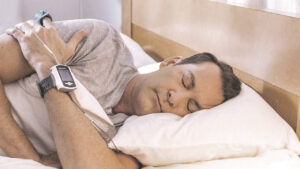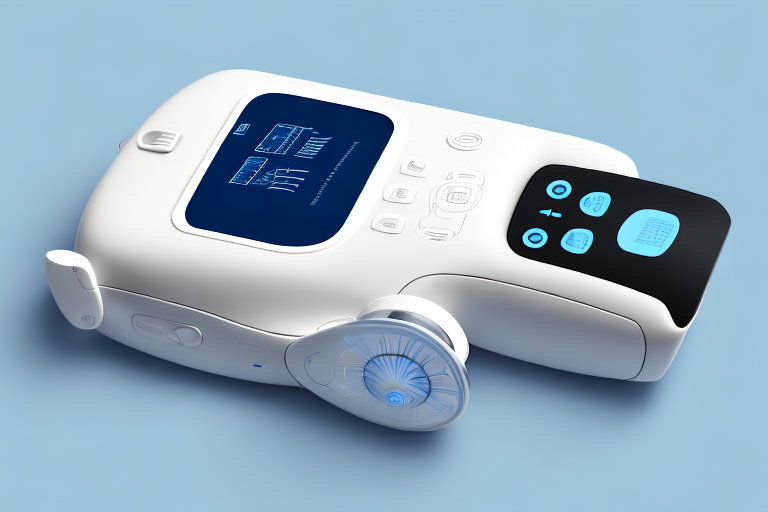
If you or someone you know suffers from sleep apnea, then you understand just how important proper treatment can be. Sleep apnea is a serious sleep disorder that can lead to a range of negative health consequences if left untreated. Fortunately, advancements in technology have made it easier than ever to manage this condition.
One of the most groundbreaking of these advancements is the ResMed AirMini, a portable sleep apnea machine that is changing the game when it comes to treating sleep apnea.
Understanding Sleep Apnea and Its Impact on Health
Sleep apnea is a condition characterized by pauses in breathing or shallow breaths during sleep. These pauses can last anywhere from a few seconds to a few minutes and can occur dozens of times per hour. This can lead to fragmented sleep and poor sleep quality, which can have a range of negative impacts on health.
What is Sleep Apnea?
Sleep apnea is a sleep disorder that affects millions of people worldwide. There are three main types of sleep apnea: obstructive, central, and complex. Obstructive sleep apnea is the most common form, occurring when the airway is obstructed during sleep. This obstruction can be caused by a variety of factors, including obesity, enlarged tonsils, or a deviated septum. Central sleep apnea occurs when the brain fails to signal the muscles that control breathing. Complex sleep apnea is a combination of the two.
Symptoms and Risks of Sleep Apnea
Some common symptoms of sleep apnea include snoring, fatigue, headaches, and irritability. However, many people with sleep apnea may not even realize they have it, as the symptoms can be subtle or mistaken for other conditions. Sleep apnea has also been linked to a range of health problems, including high blood pressure, heart disease, stroke, and diabetes. It is essential to seek proper treatment for sleep apnea to prevent these potentially life-threatening complications.
Other symptoms of sleep apnea can include waking up with a dry mouth or sore throat, difficulty concentrating during the day, and a decreased sex drive. In severe cases, sleep apnea can even lead to depression and anxiety.
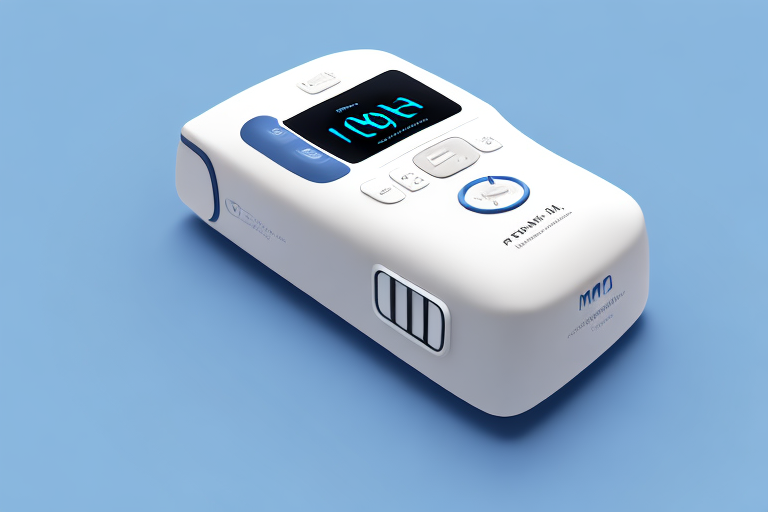
The Importance of Proper Treatment
The good news is that sleep apnea can be effectively managed with proper treatment. One of the most popular types of treatment is continuous positive airway pressure (CPAP) therapy, which involves using a machine to deliver a steady stream of air to keep the airway open during sleep. However, traditional CPAP machines can be bulky, difficult to travel with, and may not be comfortable for all users.
Other treatment options include oral appliances, which are custom-made mouthguards that help keep the airway open, and surgery to remove excess tissue or correct structural abnormalities in the airway. Lifestyle changes, such as losing weight and quitting smoking, can also help improve symptoms of sleep apnea.
If you suspect you may have sleep apnea, it is important to speak with your healthcare provider. They may refer you to a sleep specialist, who can perform a sleep study to diagnose the condition and recommend the best course of treatment.
Proper treatment of sleep apnea can not only improve sleep quality and overall health but can also improve quality of life and productivity during waking hours. Don’t let sleep apnea go untreated – seek help today.
Traditional CPAP Therapy: Benefits and Limitations
Continuous positive airway pressure (CPAP) therapy is a common treatment for sleep apnea, a condition in which a person’s breathing is repeatedly interrupted during sleep. CPAP therapy involves using a machine to deliver a constant stream of pressurized air through a mask worn over the nose and/or mouth. This air pressure helps to keep the airway open during sleep, preventing pauses in breathing and other symptoms of sleep apnea.
How Does CPAP Therapy Work?
When a person with sleep apnea falls asleep, their airway can become blocked, causing them to stop breathing for brief periods of time. This interruption in breathing can lead to a range of symptoms, including loud snoring, gasping for air during sleep, and daytime fatigue. CPAP therapy works by delivering a constant stream of pressurized air through a mask, which helps to keep the airway open and prevent pauses in breathing.
The pressure of the air delivered by the CPAP machine is determined by a sleep specialist, who will prescribe the appropriate pressure based on the individual’s needs. The machine itself consists of a motor that powers a compressor, which delivers the pressurized air through a tube and into the mask worn by the patient.
The Challenges of Traditional CPAP Machines
While CPAP therapy can be highly effective, traditional CPAP machines can be bulky and difficult to travel with. This can make it challenging for sleep apnea patients who need to use their CPAP machine while on the go. Additionally, some patients may find the mask uncomfortable or may experience difficulty adjusting to the sensation of the pressurized air.
For these reasons, many sleep apnea patients may be hesitant to use CPAP therapy, even though it can greatly improve their quality of life and reduce their risk of serious health complications.
The Need for a Portable Solution
As the demand for portable CPAP therapy options has grown, so too has the need for more compact and travel-friendly devices. That is where the ResMed AirMini comes in. This innovative device is designed to provide effective CPAP therapy in a small, lightweight, and highly portable package.
The ResMed AirMini is roughly the size of a smartphone, making it easy to pack and take on the go. It is also compatible with a wide range of masks, allowing patients to choose the style and fit that works best for them. Additionally, the device is equipped with advanced features such as ramp-up pressure, which gradually increases the air pressure over time to help patients adjust to the sensation more easily.
Overall, the ResMed AirMini represents a major breakthrough in CPAP therapy, offering patients a highly effective and portable solution for managing sleep apnea. Whether at home or on the go, the AirMini allows patients to get the restful, restorative sleep they need to feel their best.
Introducing the ResMed AirMini: A Game Changer in Sleep Apnea Treatment
Sleep apnea is a common sleep disorder that affects millions of people around the world. It is characterized by pauses in breathing during sleep, which can lead to a range of health problems if left untreated. Continuous positive airway pressure (CPAP) therapy is one of the most effective treatments for sleep apnea, but traditional CPAP machines can be bulky, loud, and difficult to travel with. That’s where the ResMed AirMini comes in.
Key Features of the ResMed AirMini
The ResMed AirMini is one of the smallest CPAP machines available on the market. It weighs in at just over half a pound and is no larger than a smartphone, making it highly portable and easy to take with you wherever you go. Despite its small size, the AirMini delivers the same effective treatment as a traditional CPAP machine and is compatible with a variety of masks.
One of the standout features of the AirMini is its AutoSet function, which automatically adjusts the pressure level based on your breathing patterns throughout the night. This ensures that you receive the optimal level of treatment without having to manually adjust the settings yourself.
How the AirMini Addresses the Limitations of Traditional CPAP Machines
The ResMed AirMini is specifically designed to address some of the limitations of traditional CPAP machines. Its small size and portability make it ideal for sleep apnea patients who need to travel frequently and may not want to lug around a bulky machine. Additionally, the AirMini is designed to be easy to use, with a simple interface that allows users to customize their treatment settings with ease.
Another limitation of traditional CPAP machines is the noise level. Many people find the sound of the machine to be disruptive to their sleep, which can actually worsen their sleep apnea symptoms. The AirMini, however, is incredibly quiet, with a noise level of just 30 decibels. This means you can sleep soundly without any disruptive noise from your CPAP machine.
Compatibility with Various CPAP Masks
The ResMed AirMini is compatible with a wide range of CPAP masks, allowing users to choose the mask that best suits their needs and preferences. Whether you prefer a nasal mask, full face mask, or nasal pillow mask, there is an option that will work with the AirMini.
In addition to its compatibility with various masks, the AirMini also comes with a range of accessories to enhance your CPAP therapy experience. These include a travel case, a portable charger, and a bedside mount, among others.
Overall, the ResMed AirMini is a game changer in sleep apnea treatment. Its small size, portability, and compatibility with various masks make it an ideal choice for sleep apnea patients who want to receive effective treatment without sacrificing convenience and comfort.
The Benefits of Portable CPAP Therapy for Sleep Apnea Patients
Improved Compliance and Treatment Outcomes
One of the biggest benefits of the ResMed AirMini and other portable CPAP devices is that they can improve compliance with CPAP therapy. For sleep apnea patients who find traditional CPAP machines uncomfortable or difficult to use, having a more portable and user-friendly option can make all the difference. Improved compliance can lead to better treatment outcomes and a better quality of life.
Furthermore, the ResMed AirMini is equipped with advanced features that allow for a more personalized treatment experience. Its AutoSet feature, for example, automatically adjusts the pressure levels to match the patient’s breathing patterns, ensuring a more comfortable and effective therapy session. This advanced technology can help patients stick to their treatment plan and achieve better results over time.
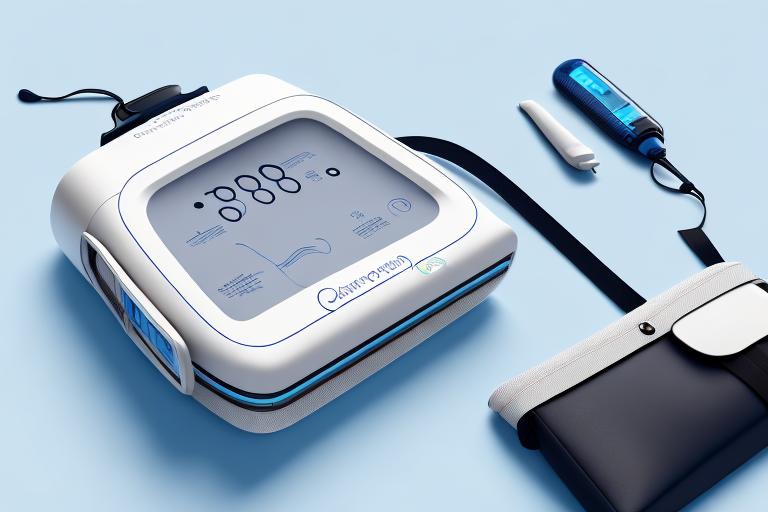
Greater Flexibility for Travel and Lifestyle
The portability of the ResMed AirMini means that sleep apnea patients can travel with ease, without having to worry about lugging around a bulky machine. Whether it’s a weekend getaway or a long trip overseas, the AirMini’s compact size and lightweight design make it the perfect travel companion. Additionally, the AirMini’s compatibility with various masks and accessories means that patients can choose the option that best suits their preferences and lifestyle.
Moreover, the AirMini’s portability allows patients to maintain their sleep therapy routine even when they are away from home. This can be especially beneficial for those who travel frequently or have a busy lifestyle. By ensuring that they get a good night’s sleep every night, patients can improve their overall health and well-being.
Enhanced Comfort and Ease of Use
The ResMed AirMini is designed to be comfortable and easy to use, with a range of customization options to ensure a personalized treatment experience. Its small size and lightweight design mean that it is less obtrusive during sleep, making it a more comfortable option for many sleep apnea patients. Additionally, the AirMini’s intuitive interface and user-friendly controls make it easy for patients to adjust settings and monitor their therapy progress.
Moreover, the AirMini’s compatibility with various masks and accessories means that patients can choose the option that best suits their preferences and needs. Whether it’s a nasal mask, a full-face mask, or a nasal pillow mask, patients can find a comfortable and effective option that allows them to get the most out of their therapy sessions.
Conclusion
The ResMed AirMini and other portable CPAP devices offer a range of benefits for sleep apnea patients. From improved compliance and treatment outcomes to greater flexibility for travel and lifestyle, these devices can help patients maintain their sleep therapy routine and achieve better health and well-being. By providing a comfortable and user-friendly treatment experience, the AirMini can make a real difference in the lives of sleep apnea patients.
Finally,
The ResMed AirMini marks a significant step forward in the treatment of sleep apnea. Its small size, portability, and ease of use make it a highly effective option for anyone looking for a more flexible and convenient CPAP therapy option. With the AirMini, sleep apnea patients can enjoy improved treatment outcomes and a better quality of life, without sacrificing effective treatment for their condition.

